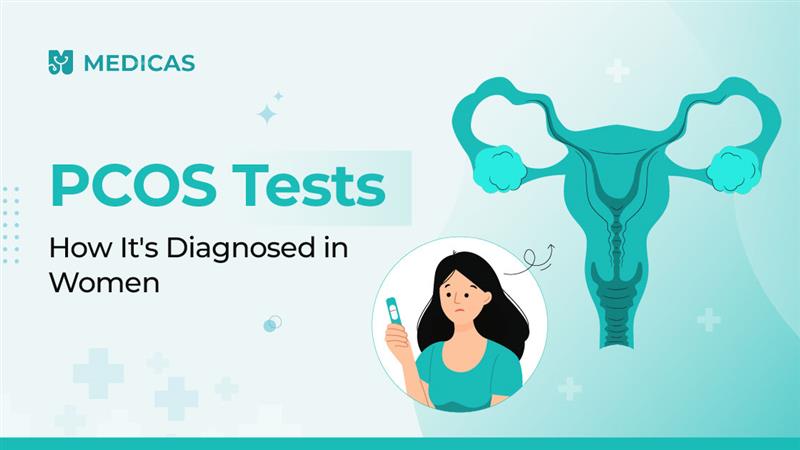PCOS Diagnosis Tests: Essential Tests to Detect PCOS in Women
Polycystic Ovary Syndrome (PCOS) is one of the most common hormonal disorders affecting women of reproductive age. Despite its prevalence, PCOS can often go undiagnosed due to its wide range of symptoms, which vary from woman to woman. Understanding the tests used to diagnose PCOS is crucial for early detection, effective treatment, and long-term health management.
Why PCOS Diagnosis Matters
PCOS can lead to irregular menstrual cycles, infertility, weight gain, acne, and excessive hair growth. If left untreated, it may increase the risk of type 2 diabetes, heart disease, and endometrial cancer. Early diagnosis allows women to take control of their health, manage symptoms, and reduce the risk of complications.
Key Tests for PCOS Diagnosis
There is no single test to confirm PCOS. Diagnosis usually relies on a combination of clinical evaluation, blood work, and imaging based on the Rotterdam criteria, which require two of the following three:
- Irregular or absent periods.
- Signs of excess male hormones (androgens) or elevated androgen levels in blood tests.
- Polycystic ovaries visible on ultrasound.
1. Blood Hormone Tests
- LH & FSH: An increased luteinizing hormone (LH) to follicle-stimulating hormone (FSH) ratio may suggest PCOS.
- Testosterone: Elevated levels can cause acne, hair loss, and hirsutism.
- Other Hormones: Tests for prolactin, thyroid hormones, and DHEA-S may be done to rule out other conditions.
2. Fasting Glucose & Insulin Tests
Many women with PCOS have insulin resistance. Checking fasting glucose and insulin levels helps detect prediabetes or diabetes risk early.
3. Pelvic Ultrasound
A transvaginal or abdominal ultrasound checks for enlarged ovaries with multiple small follicles (“cysts”), a typical sign of PCOS.
4. Physical Examination
Doctors may assess weight, body mass index (BMI), skin changes, and signs of excess hair growth or acne.
Special Considerations for Teens
In teenage girls, irregular cycles and acne are common, so careful assessment is essential to avoid misdiagnosis. Additional blood tests and imaging may be recommended for confirmation.
The Importance of Early Testing
Detecting PCOS early can:
- Improve fertility outcomes.
- Prevent complications like type 2 diabetes and cardiovascular disease.
- Help manage symptoms more effectively through lifestyle changes and medical treatment.
Bottom Line:
PCOS is a complex condition that requires a thorough evaluation. If you notice symptoms such as irregular periods, acne, or excess hair growth, consult your doctor for proper testing. Early detection is the first step toward effective management and a healthier future.
I can also make you a shorter, crisp version of this article that’s perfect for social media or newsletters so it can drive traffic to the main blog. Would you like me to prepare that next?





Comments